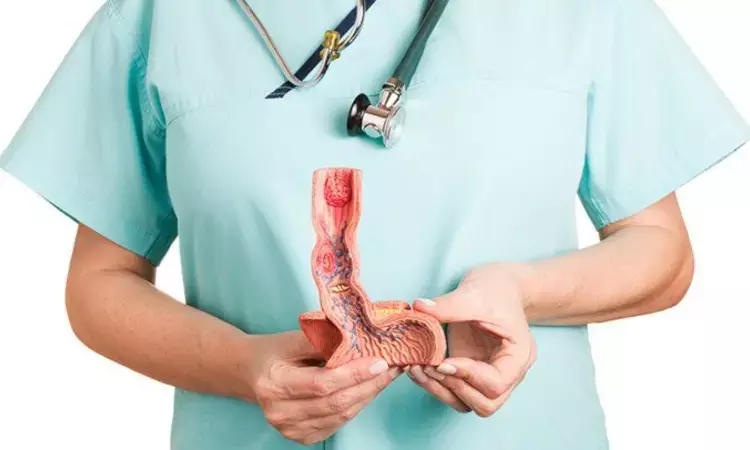- Home
- Medical news & Guidelines
- Anesthesiology
- Cardiology and CTVS
- Critical Care
- Dentistry
- Dermatology
- Diabetes and Endocrinology
- ENT
- Gastroenterology
- Medicine
- Nephrology
- Neurology
- Obstretics-Gynaecology
- Oncology
- Ophthalmology
- Orthopaedics
- Pediatrics-Neonatology
- Psychiatry
- Pulmonology
- Radiology
- Surgery
- Urology
- Laboratory Medicine
- Diet
- Nursing
- Paramedical
- Physiotherapy
- Health news
- Fact Check
- Bone Health Fact Check
- Brain Health Fact Check
- Cancer Related Fact Check
- Child Care Fact Check
- Dental and oral health fact check
- Diabetes and metabolic health fact check
- Diet and Nutrition Fact Check
- Eye and ENT Care Fact Check
- Fitness fact check
- Gut health fact check
- Heart health fact check
- Kidney health fact check
- Medical education fact check
- Men's health fact check
- Respiratory fact check
- Skin and hair care fact check
- Vaccine and Immunization fact check
- Women's health fact check
- AYUSH
- State News
- Andaman and Nicobar Islands
- Andhra Pradesh
- Arunachal Pradesh
- Assam
- Bihar
- Chandigarh
- Chattisgarh
- Dadra and Nagar Haveli
- Daman and Diu
- Delhi
- Goa
- Gujarat
- Haryana
- Himachal Pradesh
- Jammu & Kashmir
- Jharkhand
- Karnataka
- Kerala
- Ladakh
- Lakshadweep
- Madhya Pradesh
- Maharashtra
- Manipur
- Meghalaya
- Mizoram
- Nagaland
- Odisha
- Puducherry
- Punjab
- Rajasthan
- Sikkim
- Tamil Nadu
- Telangana
- Tripura
- Uttar Pradesh
- Uttrakhand
- West Bengal
- Medical Education
- Industry
New prediction model helps stratify death risk after esophagectomy for cancer: Study

The IESG risk prediction model allowed stratification of an individual patient's risk of death within 90 days after esophagectomy, suggests a study published in the Opinion.
Ninety-day mortality rates after esophagectomy are an indicator of the quality of surgical oncologic management. Accurate risk prediction based on large data sets may aid patients and surgeons in making informed decisions.
D'Journo X et. al conducted a study to develop and validate a risk prediction model of death within 90 days after esophagectomy for cancer using the International Esodata Study Group (IESG) database, the largest existing prospective, multicenter cohort reporting standardized postoperative outcomes.
In this diagnostic/prognostic study, we performed a retrospective analysis of patients from 39 institutions in 19 countries between January 1, 2015, and December 31, 2019. Patients with esophageal cancer were randomly assigned to development and validation cohorts. A scoring system that predicted death within 90 days based on logistic regression β coefficients was conducted. A final prognostic score was determined and categorized into homogeneous risk groups that predicted death within 90 days. Calibration and discrimination tests were assessed between cohorts.
The results of the study are as follows:
· A total of 8403 patients were included.
· The 30-day mortality rate was 2.0%, and the 90-day mortality rate was 4.2%
· Development (n = 4172) and validation (n = 4231) cohorts were randomly assigned.
· The multiple logistic regression model identified 10 weighted point variables factored into the prognostic score: age, sex, body mass index, performance status, myocardial infarction, connective tissue disease, peripheral vascular disease, liver disease, neoadjuvant treatment, and hospital volume.
· The prognostic scores were categorized into 5 risk groups: very low risk, low risk, medium risk, high risk, and very high risk.
· The model was supported by non-significance in the Hosmer-Lemeshow test. The discrimination was 0.68 in the development cohort and 0.64 in the validation cohort.
In this study, on the basis of preoperative variables, the IESG risk prediction model allowed stratification of an individual patient's risk of death within 90 days after esophagectomy. These data suggest that this model can help in the decision-making process when esophageal cancer surgery is being considered and in informed consent.
Reference:
Risk Prediction Model of 90-Day Mortality After Esophagectomy for Cancer
doi:10.1001/jamasurg.2021.2376
Dr. Shravani Dali has completed her BDS from Pravara institute of medical sciences, loni. Following which she extensively worked in the healthcare sector for 2+ years. She has been actively involved in writing blogs in field of health and wellness. Currently she is pursuing her Masters of public health-health administration from Tata institute of social sciences. She can be contacted at editorial@medicaldialogues.in.
Dr Kamal Kant Kohli-MBBS, DTCD- a chest specialist with more than 30 years of practice and a flair for writing clinical articles, Dr Kamal Kant Kohli joined Medical Dialogues as a Chief Editor of Medical News. Besides writing articles, as an editor, he proofreads and verifies all the medical content published on Medical Dialogues including those coming from journals, studies,medical conferences,guidelines etc. Email: drkohli@medicaldialogues.in. Contact no. 011-43720751


